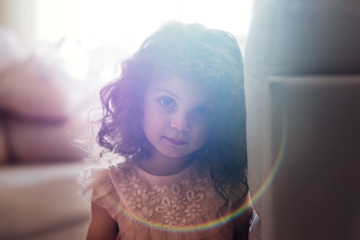 When going through a divorce, your children’s well-being is likely
at the forefront of your mind. With a shift in family dynamic, it’s
important to think about how your actions may be hurting or helping your
children as they adjust to the changes of not having both parents under
the same roof. For this blog series, we’ll be focusing on how divorce
can affect different age groups of children, as well as how you can practically
aim to help reduce emotional hardships they may be feeling throughout
the process. For this blog, we’ll be focusing on toddlers.
When going through a divorce, your children’s well-being is likely
at the forefront of your mind. With a shift in family dynamic, it’s
important to think about how your actions may be hurting or helping your
children as they adjust to the changes of not having both parents under
the same roof. For this blog series, we’ll be focusing on how divorce
can affect different age groups of children, as well as how you can practically
aim to help reduce emotional hardships they may be feeling throughout
the process. For this blog, we’ll be focusing on toddlers.
Toddlers
18 months-3 years
When you have a toddler, it’s important to understand how crucial of a role you play in their life. At this age, parents are truly the center of a toddler’s life. Understanding this, and how your separation from your spouse will affect this reality, can help you not only understand their reactions, but how to mitigate certain negative experiences.
When parents of a toddler divorce, the disruption of a home can be challenging for the child. Toddlers are just old enough to understand that something is broken, but they don’t quite have the ability to reason through the “why” or “how” of the situation. As a result, seeing their parents split apart can rock their core foundation. At this age, toddlers tend to be relatively self-centered and focused, and may feel that they are a reason for the change. Such feelings can lead to certain behavioral outbursts or regressions, such as being afraid to sleep alone, resisting potty training or direction, reverting back to comforting habits (such as sucking their thumb) and being hyper-attuned to any feeling of abandonment.
As a divorcing parent of a toddler, there are a few things you can do to help them throughout the process. First, try and maintain a normal schedule for your child, if possible. Even with shared custody, maintaining a consistent time-frame for certain events throughout the day can help, regardless of which parent’s house the toddler is staying.
In addition to this, don’t be afraid to talk with them. In fact, one of the worst things you could do is not address the divorce with them, as they may internally be blaming themselves, or worrying about future abandonment. It’s a conversation you will likely want to have with them a few times—one that explains to them the new living situations and how things might change, but primarily focuses on reassuring them that they are not to blame and that this won’t affect their relationship with either parent. Many toddlers will feed off of your energy and words when trying to understand and assess the situation.
 Also, if your child has a “comfort toy”—some sort of
belonging that is a comfort to them and offers a consistent presence,
allow them to bring that with them when going back and forth between houses.
Also, if your child has a “comfort toy”—some sort of
belonging that is a comfort to them and offers a consistent presence,
allow them to bring that with them when going back and forth between houses.
When going through a divorce with a toddler, it’s understandably going to be challenging. While there’s no sure way to ensure that the process will be smooth, there are certain things that you and your ex can do to help your child feel secure and safe amidst a time of many changes. Be open with your toddler about the change and what to expect, and reassure them as many times as they need that they are not to blame, and that you are not “divorcing” them. Be patient with certain behavioral outbursts they may exhibit as they come to terms with the change, and remember that a thriving relationship with you and your ex are likely in their best interest.
The attorneys at Pacific Cascade Legal understand the feelings of anxiety that can accompany a divorce with children. We are here to not only advocate for your legal needs, but to help make your divorce process as seamless and healthy for your children as well.



